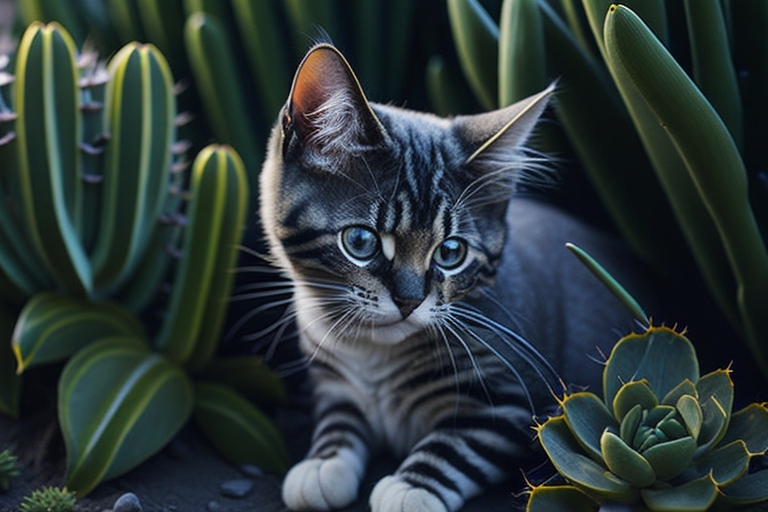Succulents, known for their unique and captivating appearance, have become a favorite among plant enthusiasts. However, if you’re a cat owner, it’s crucial to be aware of their potential dangers. Are succulents poisonous to cats? Many succulent varieties can be toxic to cats if ingested. Certain compounds found in these plants, such as alkaloids and glycosides, can lead to a range of symptoms, from mild gastrointestinal upset to more severe reactions. It’s important to take precautions and, if necessary, opt for non-toxic succulent alternatives to ensure the safety and well-being of your feline companion.
Table of Contents
Introduction
Succulents have gained immense popularity in recent years, thanks to their striking appearance and low maintenance requirements. However, if you’re a cat owner, it’s essential to be aware of the potential risks these plants may pose to your furry friend. In this article, we’ll delve into whether succulents are poisonous to cats, explore common toxic varieties, and provide guidance on keeping both your plants and your feline companion safe.
Common Succulent Varieties
Not all succulents are created equal when it comes to toxicity. Some common succulents, such as Aloe Vera, Euphorbia, and Kalanchoe, can be harmful to cats if ingested. It’s crucial to identify these varieties and take appropriate precautions if you choose to have them in your home.
Toxic Compounds in Succulents
Succulents contain various compounds that can be harmful to cats. These may include alkaloids, saponins, and glycosides. When ingested, these compounds can lead to symptoms ranging from mild gastrointestinal upset to more severe reactions.
Signs of Succulent Poisoning in Cats
It’s crucial for cat owners to recognize the signs of succulent poisoning. Common symptoms may include vomiting, diarrhea, lethargy, loss of appetite, and in severe cases, difficulty breathing. If you suspect your cat has ingested a toxic succulent, immediate action is necessary.
Immediate Actions to Take
If you suspect your cat has consumed a toxic succulent, contact your veterinarian or an emergency animal clinic without delay. Provide them with as much information as possible about the plant and your cat’s symptoms. In some cases, inducing vomiting or administering activated charcoal may be necessary.
Non-Toxic Alternatives for Cat Owners
For cat owners who still want to enjoy the beauty of succulents, there are several non-toxic varieties available. Some safe options include Haworthia, Sedum, and Spider Plants. These plants can coexist peacefully with your feline companion.
Keeping Succulents and Cats Safe Together
To create a safe environment for both your plants and your cat, consider placing toxic succulents out of reach or in rooms that your cat cannot access. Additionally, provide alternative plants for your cat to explore, ensuring they have a stimulating environment.
Conclusion
In conclusion, while succulents can be a lovely addition to your home, it’s essential to be aware of their potential dangers to cats. By understanding which varieties are toxic and taking appropriate precautions, you can create a harmonious living space for both your plants and your furry friend.
FAQs
- Q: Can I still have succulents if I own a cat?
- A: Yes, but it’s crucial to choose non-toxic varieties and take precautions to keep them out of your cat’s reach.
- Q: What should I do if I suspect my cat has ingested a toxic succulent?
- A: Contact your veterinarian or an emergency animal clinic immediately for guidance.
- Q: Are there any succulents that are completely safe for cats?
- A: Yes, plants like Haworthia and Spider Plants are considered safe options for cat owners.
- Q: How can I create a cat-friendly environment with succulents?
- A: Place toxic succulents in areas your cat cannot access and provide alternative plants for them to explore.
- Q: Where can I find more information on cat-safe plants?
- A: Your veterinarian or local plant nursery can provide guidance on non-toxic plant options for cat owners.
